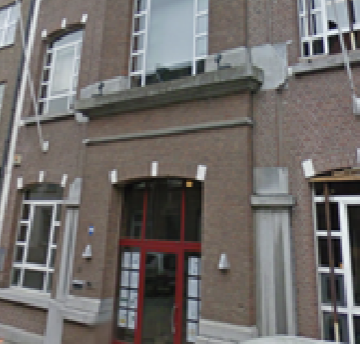Innovation that translates into productivity enhancement is literally the only driver that will lift our society’s wealth in the future versus the present in a pareto-efficient way, i.e. without redistributing wealth from one country to another. This type of innovation is often called ‘transformational’.
Other innovation is also nice and desirable, but its predominant value is that it increases the customer’s choice, while keeping competition sharp. This is often called ‘incremental innovation’. Most innovation is incremental. However, only transformational innovation really creates wealth, as it ensures that a given amount of resources is producing more output.
Impact of innovation
The wealth creation that is brought to society by transformational innovation is often misunderstood by that society itself, as transformational innovation typically starts with disruption – which mostly translates into initial job losses. These days, the broad adaptation and application of Artificial Intelligence (AI) in every day’s life is as disputed as formerly the introduction of the spinning or harvesting machine.
People understand that these inventions will initially bring about major job losses, and it is psychologically difficult for most people to feel comfortable with permanently changing rules and job uncertainty. In my perception, only a minority of people embraces innovation, disruption, and – to some extent – the consequential uncertainty that comes with what the future may bring.
Moving fast-forward to today, the next big productivity-enhancing quantum leap for society will be the combination of AI with machines that have either not existed on an industrial scale yet or that still required significant human skills and craftsmanship to get to the desired result.
As soon as the technology can demonstrate that it is superior to human intervention, the doors are open for growth investments on a giga-scale. Whether we talk about self-driving vehicles, industrial production machines, ironing machines, planning and harvesting machines, pick-and-place, or loading and unloading machines, they will all have one factor in common: classical human transactional skills can be done better and more reliably by an AI-run machine. Industries that are already currently in full swing of this disruption are the financial service sector and the retail sector.
Role of design agencies
It is crucial for cutting-edge design agencies such as Achilles Design to play a role in this transformation. However, practically speaking, it is nearly impossible to offer all required innovation services from in-house resources an on top-notch professional standards to clients. There is no design agency that has professionals in-house that cover the whole spectrum of expertise that is required for contemporary high-tech design solutions.
By contrast, customers are typically unable or unwilling to co-ordinate the project management for such complex innovation projects, which means that design agencies are naturally required to source, screen, and select, but also to manage the co-operation between the different service providers in order to bring a design project to a successful end. In other words, modern design agencies are increasingly one-stop shops even for very complex innovation projects.
At Achilles Design, we took the very conscious decision to be a general contractor and project manager for demanding innovation challenges. We systematically look for relevant business partners who have deep expertise in domains that will play an increasingly important role in the future, whether this is with respect to AR/VR, AI and machine learning, PCB design, data science, App development, or market research – to name just a few. The essential bottom-line is that our clients get their innovation projects delivered, no matter what.
In other words, design agencies that want to play a role in tomorrow’s transformational impact-innovation have to be able to master quite demanding managerial tasks that reach far beyond the design discipline that designers once studied at university. Modern design agencies need in-house business management and project management skills, and – depending on how deep a design agency engages with its expert business partners – it is increasingly important to have financial and M&A expertise in-house as well.
History vs today
To put things into historical perspective, 500 years ago, 73% of the French population worked in the agricultural sector – compared to less than 3% nowadays. The situation is comparable in other European countries. Rapid job losses in the sector started after 1800, when the emerging industrialization gained traction. In essence, 70% of total employment had to look for another source of income over the centuries.
Or to put differently: 70% of the French working people were able to contribute wealth to society beyond feeding that society, which is how carpenters and builders and gardeners and tailors emerged who made their craftsmanship more available and affordable for broader parts of society. As such, much wider parts of society got access to products and services that were formerly not available to them.




